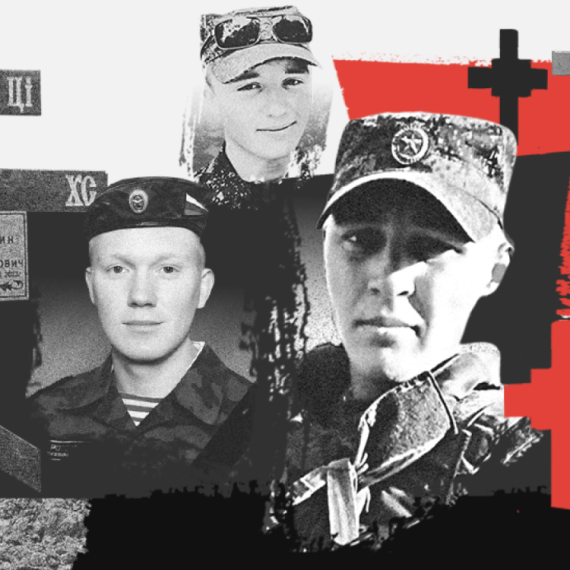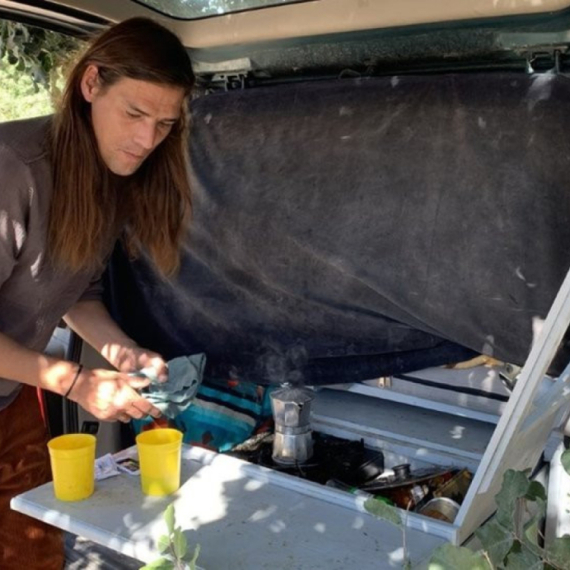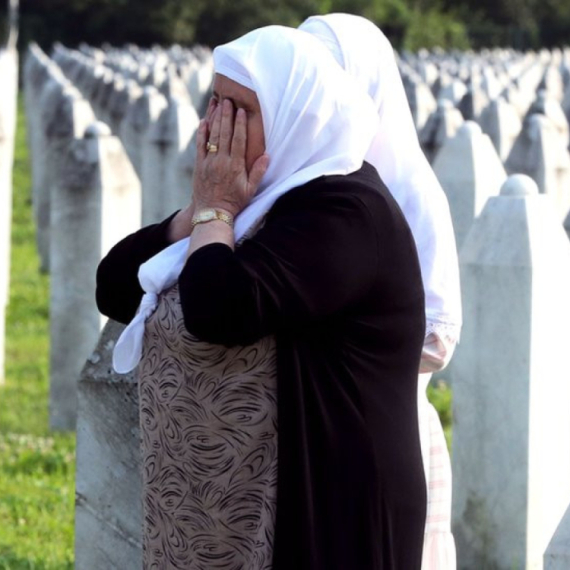Serbia, Croatia sign police agreement
Serbian and Croatian Interior Ministers Ivica Dačić and Tomislav Karamarko yesterday signed an agreement on police cooperation in Rijeka.
Tuesday, 26.05.2009.
10:20

Serbian and Croatian Interior Ministers Ivica Dacic and Tomislav Karamarko yesterday signed an agreement on police cooperation in Rijeka. The agreement should facilitate cooperation in tackling organized crime, terrorism and corruption. Serbia, Croatia sign police agreement “The message we’re sending today to organized crime groups is that neither Serbia nor Croatia will be an oasis for harboring the perpetrators of criminal acts,” said Dacic after the signing. The Serbian minister called on other countries to lend their cooperation in combating organized crime. He said that the Serbian and Croatian police were already cooperating successfully in that area, which was a prerequisite for the two countries’ European integration, adding that it was necessary to take the struggle to a regional level, since criminal groups were made up of people from all the former Yugoslav republics. “The idea is to create a regional anti-organized crime center, which would coordinate all criminal and intelligence information, and which would help keep the situation under control and keep us one step ahead of criminal actions,” said Dacic . The minister said that the center could be located in Belgrade and headed by a Croatian, or vice versa, and that information could be exchanged on a daily basis, adding that cooperation between Serbia and Croatia should be an example to encourage other countries in the region to join in. “The issue of international crime, terrorism and corruption must supersede political relations, as our citizens' lives depend on it, and the police have to cooperate, because crime groups are already cooperating excellently,” he said, adding that relations between Serbia and Croatia were vital for the stability of the whole region. Dacic said that it had also been proposed for the two countries’ judicial authorities and police to meet and discuss war crimes issues, in order to make travel easier and prevent incidents like arrests on old indictments. Karamarko stressed that police cooperation between the two countries was very successful and had to remain consistent, and not be called into question by political relations. The Croatian interior minister said that the efforts of the two countries’ police forces were setting the tone for bilateral relations, adding that it was vital that organized crime was combated effectively. Dacic and Karamarko yesterday signed an inter-governmental agreement on combating illegal migration, enabling application of the Readmissions Law. The police cooperation agreement foresees the appointment of liaison officers between Zagreb and Belgrade, and allows implementation of a witness protection program, exchange of information, personnel and training. Ivica Dacic (FoNet, archive)
Serbia, Croatia sign police agreement
“The message we’re sending today to organized crime groups is that neither Serbia nor Croatia will be an oasis for harboring the perpetrators of criminal acts,” said Dačić after the signing.The Serbian minister called on other countries to lend their cooperation in combating organized crime.
He said that the Serbian and Croatian police were already cooperating successfully in that area, which was a prerequisite for the two countries’ European integration, adding that it was necessary to take the struggle to a regional level, since criminal groups were made up of people from all the former Yugoslav republics.
“The idea is to create a regional anti-organized crime center, which would coordinate all criminal and intelligence information, and which would help keep the situation under control and keep us one step ahead of criminal actions,” said Dačić .
The minister said that the center could be located in Belgrade and headed by a Croatian, or vice versa, and that information could be exchanged on a daily basis, adding that cooperation between Serbia and Croatia should be an example to encourage other countries in the region to join in.
“The issue of international crime, terrorism and corruption must supersede political relations, as our citizens' lives depend on it, and the police have to cooperate, because crime groups are already cooperating excellently,” he said, adding that relations between Serbia and Croatia were vital for the stability of the whole region.
Dačić said that it had also been proposed for the two countries’ judicial authorities and police to meet and discuss war crimes issues, in order to make travel easier and prevent incidents like arrests on old indictments.
Karamarko stressed that police cooperation between the two countries was very successful and had to remain consistent, and not be called into question by political relations.
The Croatian interior minister said that the efforts of the two countries’ police forces were setting the tone for bilateral relations, adding that it was vital that organized crime was combated effectively.
Dačić and Karamarko yesterday signed an inter-governmental agreement on combating illegal migration, enabling application of the Readmissions Law.
The police cooperation agreement foresees the appointment of liaison officers between Zagreb and Belgrade, and allows implementation of a witness protection program, exchange of information, personnel and training.


























Komentari 0